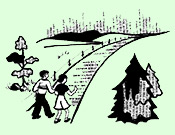
By Lois E. Wilson
People may have all the education, knowledge, experience, and technical skills in their fields of interest and career choices. But it seems as if some are stuck in an elevator waiting to go to the top floor. No matter how often they push the “up” button, the elevator doesn’t move.
They consider personal qualifications for becoming a leader, mentor, or coach—for example:
They are hard workers who are focused and able to solve problems.
They take ownership of mistakes and try to correct them.
They are passionate, courageous, and creative.
They are accountable, empathetic, and humble.
They are open and communicate well with others.
They trust those on the team, and acknowledge them for contributions to success.
Their question is—if they have all or most of these leadership skills, why doesn’t their elevator rise from the bottom floor?
Could it be they lack “people skills?” These additional skills which are needed in positions of leadership are often deliberately ignored, misused, or discarded because one may believe they are not important—but they are.
In any leadership role, one should always be prudent and professional in the approach to working with others. The leader sets the example, atmosphere, and boundaries for the team.
If leaders do not dress properly, team members may stray into wearing clothes not fitting their particular work environment. Their choice of clothes may be too revealing, too suggestive, or too casual. The clothing one wears gives a first impression. The attire of all the team’s personnel is an outward example of leadership or lack of it.
The maturity of a leader’s interactions with members of the team is also important. A sense of humor in a leader can add unity to a team. However, it must be applied in a mature manner or not at all. A leader must learn not to exhibit the exuberance of a wild child doing practical jokes or worse. A modern proverb advises: “Act your age—not your shoe size.”
A leader must always set the example of not invading a person’s private space by trying to be touchy-feely with them or too inquisitive. Such actions by a superior indicate a lack of respect, can upset the targeted person, and make them uncomfortable enough to report it to authorities. Such leaders as these can soon find themselves on the bottom floor or out forever.
There are more mature, prudent, and dedicated professional people with people skills and excellent qualifications for leadership. We should encourage them and help them rise to the top.

